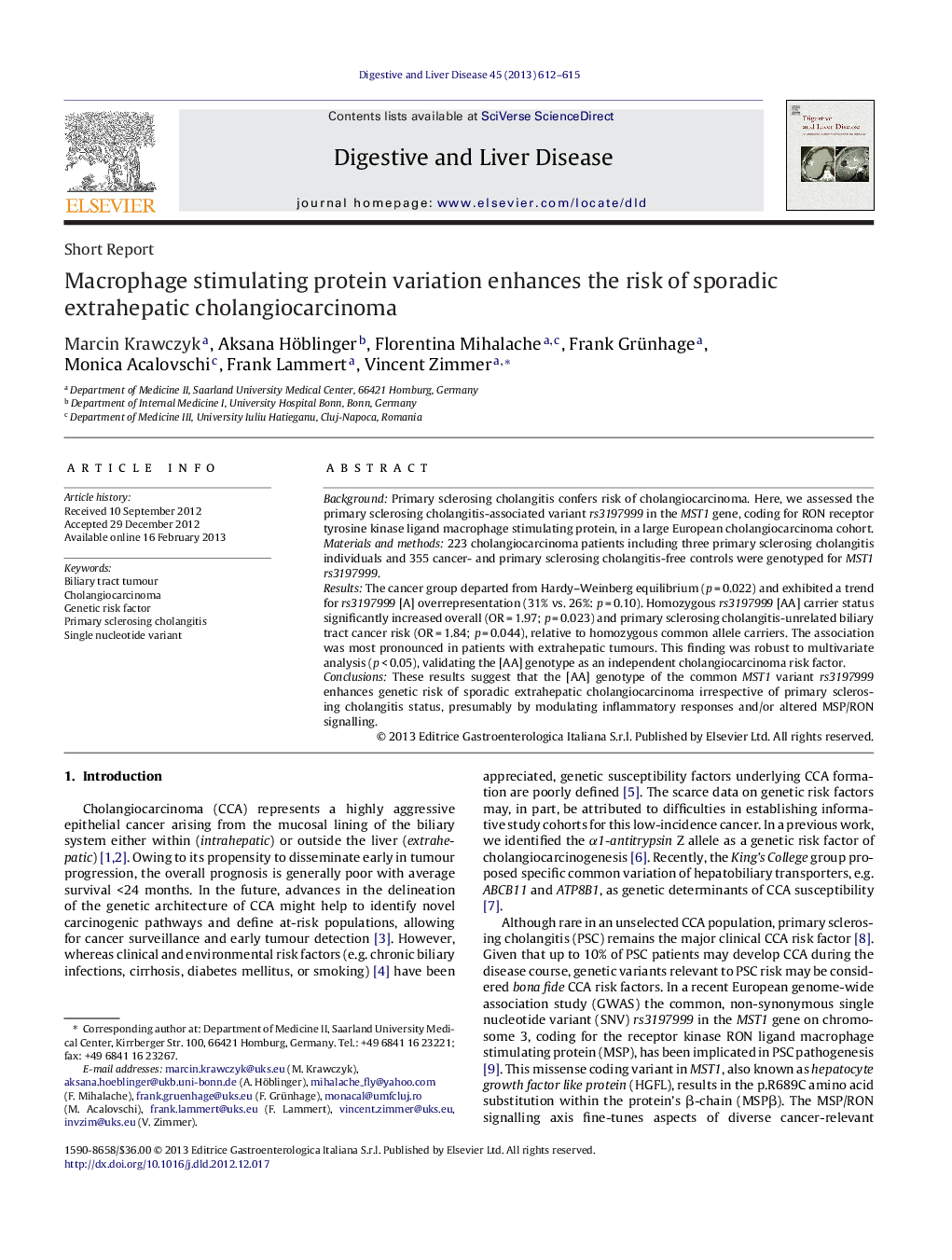| Article ID | Journal | Published Year | Pages | File Type |
|---|---|---|---|---|
| 3261993 | Digestive and Liver Disease | 2013 | 4 Pages |
BackgroundPrimary sclerosing cholangitis confers risk of cholangiocarcinoma. Here, we assessed the primary sclerosing cholangitis-associated variant rs3197999 in the MST1 gene, coding for RON receptor tyrosine kinase ligand macrophage stimulating protein, in a large European cholangiocarcinoma cohort.Materials and methods223 cholangiocarcinoma patients including three primary sclerosing cholangitis individuals and 355 cancer- and primary sclerosing cholangitis-free controls were genotyped for MST1 rs3197999.ResultsThe cancer group departed from Hardy–Weinberg equilibrium (p = 0.022) and exhibited a trend for rs3197999 [A] overrepresentation (31% vs. 26%: p = 0.10). Homozygous rs3197999 [AA] carrier status significantly increased overall (OR = 1.97; p = 0.023) and primary sclerosing cholangitis-unrelated biliary tract cancer risk (OR = 1.84; p = 0.044), relative to homozygous common allele carriers. The association was most pronounced in patients with extrahepatic tumours. This finding was robust to multivariate analysis (p < 0.05), validating the [AA] genotype as an independent cholangiocarcinoma risk factor.ConclusionsThese results suggest that the [AA] genotype of the common MST1 variant rs3197999 enhances genetic risk of sporadic extrahepatic cholangiocarcinoma irrespective of primary sclerosing cholangitis status, presumably by modulating inflammatory responses and/or altered MSP/RON signalling.
